
Sanskara (IAST: sa?sk?ra, sometimes spelled samskara) are rites of passage in a human being's life described in ancient Sanskrit texts, as well as a concept in the karma theory of Indian philosophies. The word literally means "putting together, making perfect, getting ready, to prepare", or "a sacred or sanctifying ceremony" in ancient Sanskrit and Pali texts of India.
In the context of karma theory, Sanskara are dispositions, character or behavioral traits, that exist as default from birth or prepared and perfected by a person over one's lifetime, that exist as imprints on the subconscious according to various schools of Hindu philosophy such as the Yoga school. These perfected or default imprints of karma within a person, influences that person's nature, response and states of mind.
In another context, Sanskara refers to the diverse rites of passage in Hinduism, Jainism, Buddhism and Sikhism. In Hinduism, the sanskaras vary in number and details according to regional traditions. They range from the list of 40 sanskaras in the Gautama Dharmasutra from about the middle of 1st millennium BCE, to 16 sanskaras in the Grhyasutra texts from centuries later. The list of sanskaras in Hinduism include both external rituals such as those marking a baby's birth and a baby's name giving ceremony, as well as inner rites of resolutions and ethics such as compassion towards all living beings and positive attitude.
Contents
Etymology and meaning
Sa?sk?ra (Sanskrit: ???????) has various context driven meanings, that broadly refer to "the putting together, accomplishing well, making perfect, a form of solemn recognition and getting ready, engaging in works and acknowledging the purification of body by cleansing or mind by education or an object by a process (such as polishing a gem or refining a metal)". The term appears in the ?rutis, and in the Smritis of diverse schools of Hinduism as well as the texts of Jainism, Buddhism and Sikhism. The etymological roots of the word samskara when it refers to rites of passage, is also "preparation, purifying, perfecting" from one's past state to one's future state.
The word samskara is rare in oldest layer of Vedic literature, but its roots sam and kr occur often enough. The word appears in Rig Veda hymns 6.28.4 and 8.33.9, as well as other Vedic texts, where the context suggests it simply means "purify, prepare". It appears in Jaimini Purvamimamsa-sutra (500-200 BCE) many times, where it again means "prepare, perfect, polish" something, either through action, speech or mind. In sections 3.8.3, 9.3.25 and 10.2.49 of the Jaimini Purvamimamsa-sutra, the word sanskara is used in describe actions of "washing the teeth, shaving the head, cutting nails, sprinkling water" as part of a ceremony. Samskara is defined by ancient Indian scholar Shabara as, "that which prepares a certain thing or person fit for a certain purpose". Another ancient text Viramitrodaya defines samskara, notes Kane, as "a peculiar excellence due to performance of certain actions which resides in the soul or the body of the actor".
Sanskara in Hindu traditions, states Kane, have been ceremonies, with the expression of outward symbols or signs of inner change, marking life events of significance. They served a spiritual, cultural and psychological purpose, welcoming an individual into a stage of life, conferring privileges to the individual(s), expecting duties from the individual, and impressing on the individual as well individual's social circle of his or her new role.
Sansk?ra, in modern usage, is sometimes used to mean "cultural, social or religious heritage".
Samskara as a psychological concept
In the context of karma theory, Samskara are dispositions, character or behavioral traits either as default from birth (previous lives in some schools of Hinduism), or Samskara are behavioral traits perfected over time through Yoga, through conscious shaping of inner self, one's desire, sense of moral responsibility and through practice. In some schools of Hinduism, the psychological concept of Sanskara is also known as v?san?.
These are viewed as traces or temperament that evolves through the refinement of an individual inner consciousness and expressed personality, and is a form of "being-preparedness" in Vedantic psychology. In Samkhya and Yoga schools, Sanskara – also spelled as Samksara – are impressions or residues that affect an individual's Gunas (behavior attributes). In Nyaya school of Hinduism, not all Samskara are psychological. Rites of passage, other actions, studies, diligent preparation and inner resolutions trigger impressions or dispositions in the psyche of an individual, in these schools of Hinduism, and these influence how the individual acts, perceives self and the manner in which the individual responds to or accepts the karmic circumstances and the future.
Samskara as rituals
Sanskaras in Hinduism are rites of passage that begin with one's birth, celebrates certain early steps in a baby's growth and his or her welcome into the world in the presence of friends and family, then various stages of life (Ashrama (stage)) such as first learning day, graduation from school, wedding and honeymoon, pregnancy, raising a family, as well as those related to final rites associated with cremation. These rites of passage are not uniform, and vary within the diverse traditions of Hinduism. Some may involve formal ceremonies, yajna (fire) ceremonies with the chanting of Vedic hymns. Others are simple, private affairs involving a couple, with or without friends, other family families or a religious person such as priest or pandit.
Sanskaras are not considered as end in themselves, but are means of social recognition as well as the passage of a person from one significant stage of life to another. Various elements of Sanskaras and rituals of life's passage are mentioned in Vedas of Hinduism, one of the oldest known scriptures in the world. The most extensive, but divergent discussions of these rites of passage are found in the numerous Dharmasutras and Grhyasutras from the 1st millennium BCE. Many of these rites of passage include formal ceremonies, with ritual readings of hymns, chants and ethical promises, aiming to orient the individual(s) to that which is considered part of dharma (right, good, just, moral, true, spiritual, responsible, duties to family members or society in general), and essential actions such as those associated with last rites and cremation, charitable works, or out of sraddha or items of faith.
The purpose
Gautama Dharmasutra enumerates a large list of "forty outer karma samskaras" and "eight inner karma samskara (good qualities)", all of whom have the purpose of empowering a human being to discover, recognize and reach union with the Brahma-Atman (his or her Soul, Self, Highest Being). The ultimate purpose is to inculcate virtues, and samskaras are viewed in the Hindu tradition as means – not as ends – towards ripening and perfecting the human journey of life. The eight good qualities listed by Gautama Dharmasutra are emphasized as more important than the forty samskara rituals, in verses 8.21-8.25, as follows,
(8.14-8.20)
These are the forty sanskara (sacramentary rites). (8.21)
Next, the eight virtues of the self: (8.22)
Compassion towards all creatures, patience, lack of envy, purity, tranquillity, having a positive disposition, generosity, and lack of possessiveness. (8.23)
A man who has performed the forty sanskaras but lacks these eight virtues does not obtain union with Brahman. (8.24)
A man who may have performed only some of the forty sanskaras but possesses these eight virtues, on the other hand, is sure to obtain union with Brahman. (8.25)—?Gautama Dharma-sutras, Verses 8.14-8.25, Translated by Patrick Olivelle
The 40 Samskaras
The Gautama Dharmasutra list the following forty rituals as outer samskaras:
- Garbhadhana (pregnancy), Pumsavana (rite celebrating the fetus, many translate it as quickening a male fetus), Simantonnayana (parting of pregnant woman's hair in 8th month), Jatakarman (rite celebrating the birth), Namakarana (naming the child), Annaprashana (baby's first feeding of solid food), Choulam (baby's first haircut, tonsure), and Upanayana (entry into school rite);
- the four vows associated with Vedic study;
- graduation ritual at the conclusion of school;
- marriage sva-dharma rite;
- five sacrifices to gods, ancestors, humans, spirits, and all knowledge;
- seven remembrances and donations (sacrifices) using cooked food, in the form of ancestral offerings
- seven remembrances and donations (sacrifices) in the presence of fire (yajna), to mark harvests, seasons and deities
- seven kinds of Soma sacrifices: agnistoma, atyagnistoma, ukthya, sodasin, vajapeya, atiratra and aptoryama.
To obtain union with Brahman, one must also possess the eight virtues (compassion, patience, non-envy, purity of thought speech and body, inner calm and peace, positive attitude, generosity, and lack of possessiveness).
The 16 Sanskaras
There are diverse number of Sanskaras in Hinduism, varying by texts between 12 and 18 in the Grhyasutras (Kalpa sastras). Of these, 16 are referred to as "Shodasha Samskaras" (?o?a?a Sa?sk?ra).
The wedding rituals, Vivaha
Vivaha (IAST: Viv?ha, Sanskrit: ?????) is the rite of passage and rituals associated with marriage. While there are many rituals in Hinduism, vivaha (wedding) is the most extensive personal ritual an adult Hindu undertakes in his or her life.
The wedding rites and ceremonies begin with the engagement of a couple, and extend to rites of passage after the completion of wedding. They are typically very colorful, and celebrations may extend for several days. The detailed rituals and process in a Hindu wedding vary. Nevertheless, there are a few key rituals common in Hindu weddings - Kanyadaan, Panigrahana, and Saptapadi, which are respectively, giving away of daughter by the father, voluntarily holding hand near the fire to signify union, and taking seven steps with each step includes a vow/promise to each other before fire. The Vivaha sanskara is essentially a Vedic yajna ritual, with recitation of Vedic hymns. The primary witness of a Hindu marriage is the Vedic fire-deity (or the Sacred Fire) Agni, in the presence of family and friends.
Post-wedding rites of passage include Grihapravesa – the welcoming of the bride to her new home by groom's mother, father, brother(s), or sister(s), and other relatives. Chaturthikarma – literally, "the rite performed on the fourth day after wedding", is the rite where the first domestic fire is lit marking the food-related householder life of the new couple.
Honeymoon, or the act of first sexual intercourse after the wedding is known as Nishekam (Sanskrit: ?????).
Intent to have a child ritual, Garbhadhana
Garbhadhana (IAST: Garbh?dh?na, Sanskrit: ????????), also called Garbhalambhanam, literally means attaining the wealth of the womb. It is a private rite of passage, marking the intent of a couple to have a child. It is a ceremony performed before conception and impregnation. In some ancient texts, the word simply refers to the rite of passage where the couple have sex to have a child, and no ceremonies are mentioned. Scholars trace this rite to Vedic hymns, such as those in sections 8.35.10 through 8.35.12 of the Rigveda, where repeated prayers for progeny and prosperity are solemnized,
?????? ? ????? ??????? ? ??????
bestow upon us progeny and affluence—?Rig Veda 8.35.10 - 8.35.12, Translated by Ralph Griffith
The Vedic texts have many passages, where the hymn solemnizes the desire for having a child, without
Watch movie Sanskar online on Amazon
Up to 70% discount on Mobile and laptop for today : Buy now

Up to 80% discount on Pampers diapers other baby product : Buy now 

Stream Movie Now
Watch movie Sanskar online
Watch The Movie On PrimeNayee Padosan (2003) Full HD Movie Download
.jpg)
Salakhen (1975) Full HD Movie Download
.jpg)
Babul Ki Galiyan Full HD Movie Download
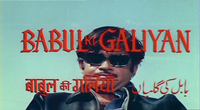
Panaah Full HD Movie Download

Anand Math Full HD Movie Download
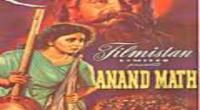
Sharafat Chhod Di Maine Full HD Movie Download
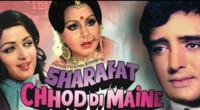
Yaar Ghaddar Full HD Movie Download

Gondya Martay Tangde Full HD Movie Download
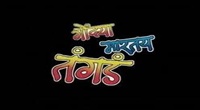
Aur Ek Jallad Full HD Movie Download

The Curious Case of Benjamin Button Full HD Movie Download

The Departed Full HD Movie Download

The Matrix Full HD Movie Download

Crime File Full HD Movie Download

Priyamaina Srivaru Full HD Movie Download
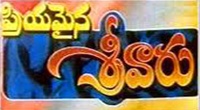
Chenna Kesava Reddy Full HD Movie Download
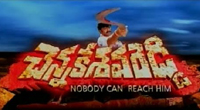
Street Fighter Full HD Movie Download

Needa The Shadow Full HD Movie Download

Lakshmi Kataksham Full HD Movie Download
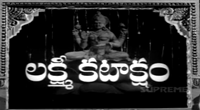
Pandanti Kapuram Full HD Movie Download
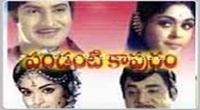
Ankhon Mein Tum Ho Full HD Movie Download

Mastan (Bengali) Full HD Movie Download
.jpg)
Download latest Movie from bollywood
- 1> baaghi 3
- 2> THE SKY IS PINK MOVIE FULL STORY AND REVIEW
- 3> Luka Chuppi
- 4> TO ALL THE BOYS I’VE LOVED BEFORE
- 5> Kabir Singh
- 6> Street Dancer 3D
- 7> Simmba
- 8> Gone Girl
- 9> The Girl Who Lived
- 10> Ludo
- 11> DILWALE DULHANIA LE JAYENGE
- 12> GUILTY
- 13> The Godfather
- 14> Adventures of Rusty
- 15> Sooryavanshi
- 16> Satyameva Jayate 2
- 17> Thappad
- 18> Bhool Bhulaiyaa 2
- 19> KGFChapter 2
- 20> Mardaani 2
- 21> Pinjar
- 22> Shivaji maharaj
- 23> Ek Villian 2
- 24> Hungama 2
- 25> Divergent
- 26> Mumbai Saga
- 27> The Internship
- 28> HIT (telugu)
- 29> Panga
- 30> The perfect date
- 31> 16 December
- 32> Gopala Gopala (Telugu)
- 33> Brahmastra
- 34> Gangubai Kathiawadi
- 35> Manmadhudu
- 36> Nenu local
- 37> Mahanati
- 38> Shatamanam bavathi
- 39> Lagaan
- 40> After
- 41> MOM
- 42> Shamshera
- 43> Raguvaran BTech
- 44> Khakee
- 45> The villain
- 46> OM
- 47> Mr. perfect
- 48> Bueatifull mind
- 49> Hichki
- 50> Gabbar Singh
- 51> Jogi
- 52> Before Sunrise
- 53> Before Sunset
- 54> Before Midnight
- 55> The Big Bull
- 56> Top Gun: Maverick
- 57> The Purge
- 58> The Sky is Pink
- 59> Laxmmi Bomb
- 60> Sadak 2
- 61> Sufna
- 62> Prithviraj
- 63> PK
- 64> Coolie No 1(2020)
- 65> Black Widow
- 66> Dear Zindagi
- 67> Dil Bechara
- 68> PHIR HERA PHERI
- 69> WAR
- 70> Dostana
- 71> RRR: Roudram Ranam Rudhiram
- 72> Maidan
- 73> Dabbang 3
- 74> Chhalaang
- 75> life as we know it
- 76> SherShaah
- 77> Sandeep Aur Pinky Faraar
- 78> Event Horizon
- 79> 83
- 80> Radhe: Your Most Wanted Bhai
- 81> Gunjan Saxena: The Kargil Girl
- 82> Mr India
- 83> Vivah
- 84> Anokha Bandhan
- 85> Ghost
- 86> Bhoot: Part One - The Haunted Ship
- 87> Haseen Dilruba
- 88> Laal Singh Chaddha
- 89> Qismat
- 90> Rajput
- 91> Drive
- 92> Dil Chahta Hai
- 93> Dil Ki Baazi
- 94> Dil Ka Rishta
- 95> Teesri Manzil
- 96> Dil
- 97> Love Aaj Kal
- 98> Khaali Peeli
- 99> Bunty Aur Babli 2
- 100> Atrangi Re
- 101> Gulabo Sitabo
- 102> Jodi
- 103> Suraj Pe Mangal Bhari
- 104> Deewana
- 105> Attack
- 106> Sardar Udham Singh
- 107> Toofan
- 108> THE LOVEBIRDS
- 109> Jersey
- 110> Ginny Weds Sunny
- 111> Thalaivi
- 112> Shiddat
- 113> Angels vs Zombies
- 114> Koi Mil Gya
- 115> Thank God
- 116> Bhuj: The Pride of India
- 117> Hum Aapke Hain Kaun
- 118> The Platform
- 119> Bird Box
- 120> Roohi Afzana
- 121> Torbaaz
- 122> Nikamma
- 123> World War Z
- 124> Extraction
- 125> Train to Busan
- 126> Life of Pi
- 127> SHAADI MEIN JROOR AANA
- 128> Himmat Aur Mehnat
- 129> To All The Boys: P.S. I Still Love You
- 130> Mimi
- 131> Good Newwz
- 132> Shubh Mangal Zyada Saavdhan
- 133> Raabta
- 134> Harry Potter and the Philosopher's Stone
- 135> Harry Potter and the Chamber of Secrets
- 136> Chhapaak
- 137> War of the Worlds
- 138> Harry Potter and the Prisoner of Azkaban
- 139> Harry Potter and the Goblet of Fire
- 140> MURDER MYSTERY
- 141> Shakuntala Devi
- 142> Bachchan Pandey
- 143> Jayeshbhai Jordar
- 144> Sheer Qorma
- 145> Saina
- 146> 'O' Pushpa I hate tears
- 147> Kedarnath
- 148> MS Dhoni The Untold Story
- 149> Chhichhore
- 150> Badhaai Ho
- 151> Unstoppable
- 152> Oz the Great And Powerful
- 153> The Girl on the Train
- 154> Haathi Mere Saathi 2020
- 155> The Conjuring: The Devil Made Me Do It
- 156> Gandhi Se Pehle Gandhi
- 157> The Song of Scorpions
- 158> Srimanthudu
- 159> Hello Guru Prema Kosame
- 160> Beauty and The Beast
- 161> Black Panther
- 162> Charlie and the Chocolate Factory
- 163> Bole Chudiyan
- 164> Fidaa
- 165> Duvvada Jagannadham
- 166> Bruce Lee: The Fighter
- 167> Hyper
- 168> Yaara
- 169> Red (2020)
- 170> Shivam
- 171> That Is Mahalakshmi
- 172> Nishabdham
- 173> Aashram 2020 web series
- 174> Laxmii
- 175> Mismatched
- 176> STUDENT OF THE YEAR 2
- 177> NAIL POLISH
- 178> Ramprasad Ki Tehrvi
- 179> KAAGAZ
- 180> 12 o Clock
- 181> The Power
- 182> bolo hau
- 183> Tribhanga
- 184> JAMUN
- 185> Madam Chief Minister
- 186> Maasaab
- 187> Aadhaar
- 188> Tanhaji
- 189> Bhaagi 3
- 190> Bhootnath
- 191> MALANG
- 192> Jai Mummy Di
- 193> Haathi Mere Saathi 2021
- 194> Shakeela
- 195> Unpaused
- 196> Annayya
- 197> Vamsoddharakudu
- 198> Mrugaraju
- 199> Narasimha Naidu
- 200> Sankranti
- 201> Manasu Maata Vinadhu
- 202> Anjaane
- 203> Apaharan
- 204> Bachke Rehna Re Baba
- 205> Bewafaa
- 206> Roohi
- 207> Radhe
- 208> Zindagi Khoobsoorat Hai
- 209> Yeh Mohabbat Hai
- 210> Yeh Kya Ho Raha Hai?
- 211> The Tomorrow War
- 212> DehradunDiary
- 213> Meri Shaadi Karaoo
- 214> Matruu Ki Bijlee Ka Mandola
- 215> No One Killed Jesica
- 216> Aag Ka Goola
- 217> Eight Million Dollars
- 218> Three Hundred
- 219> Cats and Dog
- 220> Decoy
- 221> Gold Rush
- 222> You Have Got Mail
- 223> Final Destination three
- 224> Tofan
- 225> Jungle


